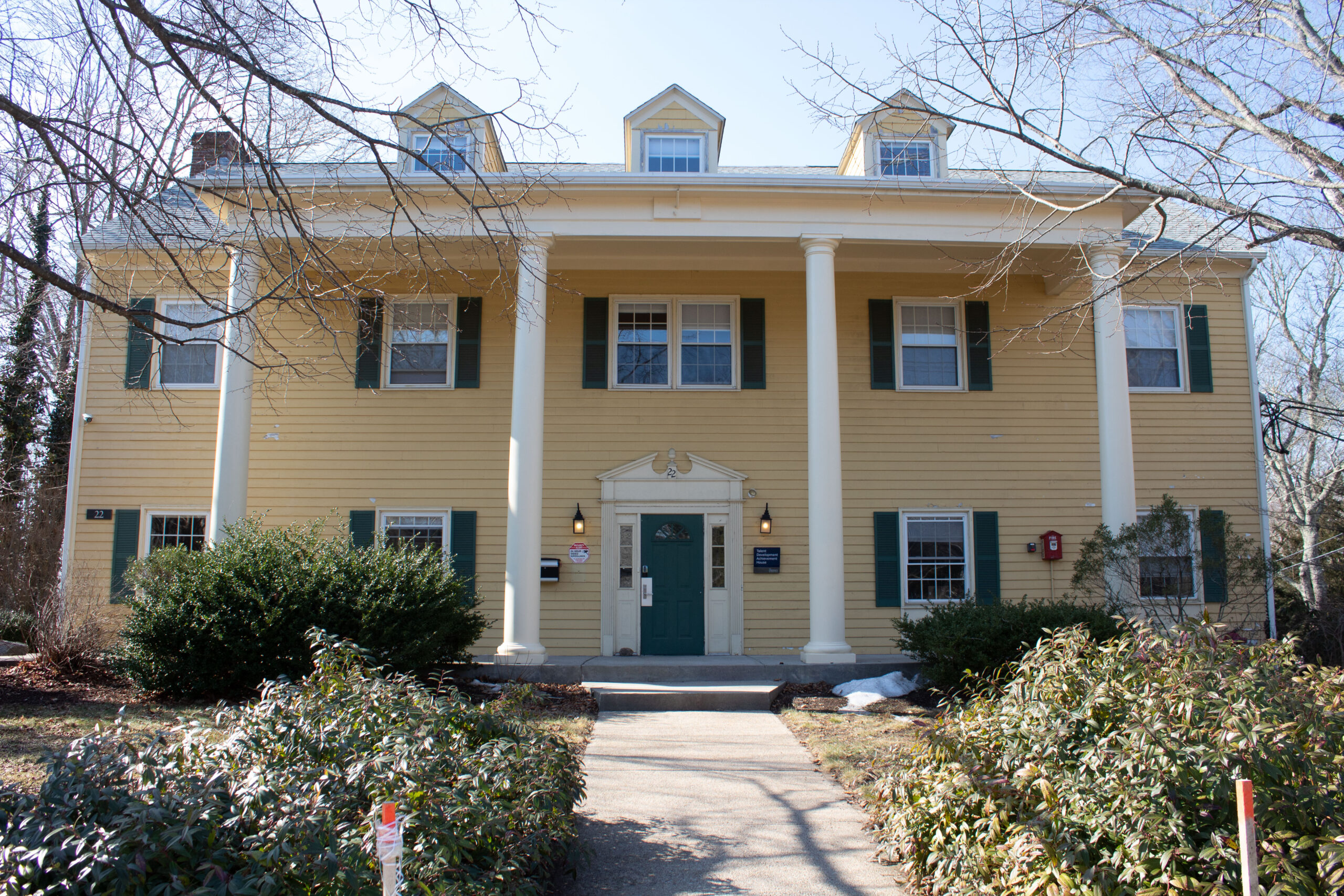The Talent Development Achievement House opened this semester as the new hub of the program. PHOTO CREDIT: Hannah Charron
The University of Rhode Island’s Talent Development Achievement House opened on Jan. 31 to give Talent Development scholars a place to strengthen their community at URI.
The Talent Development Achievement Program was founded in 1968 to help historically disadvantaged Rhode Island high school graduates gain a college degree. Currently, there are 1300 students enrolled in Talent Development, according to Ed Givens, assistant director of campus life and former Talent Development scholar.
The new housing location is located at 22 Upper College Rd., the former home of the URI Women’s Center.
“We want to be a participant of change in the University,” said Givens in regards to the new space for the program.
Currently, students in the program live in various buildings on campus in different living-learning communities (LLCs). The house will keep the TD community strong throughout the school year after spending six weeks of summer together in Hillside Hall.
According to Givens, the Achievement House will act as both an LLC and a common area for Talent Development. He hopes that this space will foster a “sense of community” among students in the program.
“The Talent Development Achievement House is a place for all Talent Development scholars to come together to build a community,” said Sammie DiCanio, a graduate assistant for Housing and Residential Life (HRL).
Givens said this is not the first attempt to build a space for Talent Development scholars. The first attempt, in 2008, is now the home of the URI Hillel. The second attempt in 2015 is now a parking lot. Both attempts failed due to issues with the finances at the time, but when this space opened up after the Women’s Center switched locations, the proposal was finally accepted.
In addition to housing 35 students, the space will also feature a dining area, a living space to host meetings and study spaces for all TD students to use, according to Givens. He said that prospective students can also tour the house.
The space is on the same road as the Welcome Center and Alumni Center and is next to the Gateway Apartments. Givens said that, in the near future, the TD administration wants to create something that is “longstanding and sustainable” for the Talent Development programs effort in diversifying campus.
Although the TDAH has a relatively small capacity in relation to students in the program, it is the first step in starting their own housing community, according to DiCanio.
“[Talent Development] scholars who are not living in the house are invited to participate in programs and social gatherings sponsored by [Talent Development],” she said.
Above all, he hopes this house will aid in the longstanding effort from Talent Development to create a more inclusive campus culture at URI.
“When students turn onto Upper College Road they should see we have a welcoming and inclusive community” said Givens.
Givens said that there are plans in the works to create an LLC that will partner with HRL and the Multicultural Center to continue to tackle social justice issues and diversify the campus.
“We’re in an age of social justice issues and that’s not going away soon,” Givens said. “They have been in existence since the Civil Rights Movement.”
Hosting events in the TDAH and collaborating with other organizations on campus is one step to make URI a welcoming place where both current and future students can feel comfortable, according to Givens.





